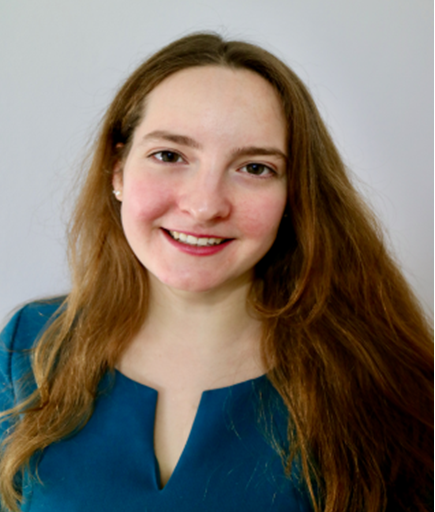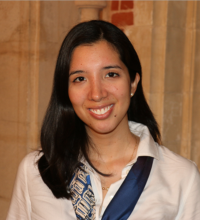What do our MPhil graduates go on to do after studying with us?
Our students go on to do myriad of things; everything from managing a sovereign wealth fund to working for a highly local NGO. Click below to read some Alumni Profiles.
If you are a member of the Centre’s Alumni and would like to let us know what you have been doing since graduating, please contact the Centre Administrator on admin@devstudies.cam.ac.uk. We will be delighted to hear from you.
Fadi Amer, MPhil in Development Studies, 2019-20
I'm currently working as an Assistant Coordination Officer at the United Nations Refugee Agency in Tunisia. My work comprises taking the UNHCR's mandate beyond traditional humanitarian work through partnerships with, as my portfolio currently comprises, development actors, the private sector, and academia.
The MPhil was tremendously helpful in helping me see the 'big picture' of refugee protection and meeting the UN's new strategy of multidimensional cooperation across the humanitarian-development-peace nexus. This includes, for example: i) understanding the complex geopolitics of shared migration pathways between vulnerable nationals, economic migrants, and refugees; ii) taking into consideration the various intersectional vulnerabilities that refugees face; and iii) finding ways to improve livelihoods even in the absence of formal national asylum legislation, all while society itself faces deep structural issues, both political and economic.
As wonderful as my time in Tunisia has been, my immediate plans moving forward are to come back to CDS to continue my studies at the doctoral level. I intend to study the structural economic transformation that took place in Lebanon in the mid-20th Century, shedding light on the process of 'free market' creation and hoping this will identify pathways for reform as my country goes through an extremely difficult period in its history.
What comes next is hard to predict, but I believe this time at CDS will put me in a strong position to not only participate in the community of knowledge-creators but also to pair pensée with praxis and make a meaningful difference in the world.
Rosanna Jackson, MPhil in Development Studies, 2019-20
I had the pleasure of being part of the 2019-2020 cohort. While this period was the start of a global pandemic, this was still a time of fast learning and intense personal growth.
Thanks to having completed this competitive and intellectually driven programme, I shifted careers from foreign diplomacy in the public sector to mission-oriented work in the private sector in renewable energy. I work at the Carbon Trust in their Programmes and Innovation Team collaborating mainly with Asian stakeholders, as a Japanese and Mandarin speaker, to support the shift to low carbon economies. The MPhil has greatly contributed to my understanding of unbundling assumptions and becoming able to recognise the boundaries of influence across the local-global levels. The MPhil very much taught me ‘how to think, and not what to think’. I use this mindset of ‘how’ – e.g. how will developing South East Asian economies be able to find their comparative advantage in a global supply chain of onshore/offshore wind power – to challenge mainstream ideas and question assumptions. My team and our clients have appreciated and highly value these skills.
Moving forward, in the short-term I intend to continue improving my language skills, especially Mandarin which I look forward to using more (previously I worked only in a Japanese-speaking environment). In the long term, I hope to better understand the Asia-Pacific region and their challenges in meeting carbon neutrality. Please feel free to reach out to connect or collaborate (rj404@cantab.ac.uk ).
Daniella Salazar Herrera, MPhil in Development Studies, 2019-20
I am currently working as a social protection consultant at the Food and Agriculture Organization of the United Nations (FAO). In this role, I support the development of social protection policies and programs in rural communities, particularly fishery-dependent ones. This entails providing policy and programmatic support to partners to strengthen the linkages between social protection and natural resource management and coordinating the development of evidence around the institutional and legal barriers to access social protection in the fisheries sector. Additionally, I am leading the development of a global database that accounts for social protection programs and policies that target and reach the fisheries and aquaculture sector, and I am also the lead consultant on the project “Social Protection for Fisheries and Aquaculture.”
The MPhil in Development Studies allowed me to understand in depth the debates surrounding rural development, including the different pathways to economic growth and their impacts on inclusivity, poverty reduction and inequality. Similarly, it gave me the tools to conduct institutional analysis that enable me today to technically support key partners in the implementation of suitable sustainable development policies and programs. Overall, the MPhil gave me the tools to think critically and innovatively about how to solve some of the challenges that rural areas face.
Moving forward, I hope to build a career on policy making at the international level that supports the design and implementation of evidence-based social protection policies and programmes, and contributes to poverty, vulnerability, and inequality reduction.
Zara Qaiser, MPhil in Development Studies, 2017-2018
After completing the MPhil in Development Studies in 2017-18, I started working at the United Nations Development Programme (UNDP) in Pakistan. In my current position as the Youth Economic Empowerment Officer at UNDP, I provide technical, research and policy support to the economic empowerment portfolio of the Youth Empowerment Programme, a multi-pronged strategy that aims at creating a facilitating environment for youth through education, engagement and economic empowerment. I support the planning and implementation of innovative initiatives on employment and entrepreneurship to provide in-demand skills to youth for the future of work and improve the startup ecosystem for micro-entrepreneurs and social entrepreneurs. I work with development stakeholders in the public and private sectors to advance the economic empowerment of youth and harness the excluded youth's potential to contribute to economic growth through programme management and partnership development. Additionally, I support policy development and advocacy to promote digital access, equality and transformation that has been a cross-cutting theme across the programme.
The MPhil in Development Studies provided me with a foundational understanding of development challenges, policy and practice. The multi-disciplinary nature of the degree and the particular courses that I took equipped me with the theoretical and analytical skills required to understand the relationship between poverty, inequality and economic growth and measure a country’s development progress through human development outcomes. The knowledge and tools that I have gained through the degree allow me to apply institutionally-informed analysis to development programming regarding youth, education and empowerment.
Working closely with beneficiaries in the field and with a multitude of stakeholders has made me realise the need for policies that are backed by evidence-based research for greater impact. This also recently led me to complete a course on Public Policy at the Lee Kuan Yew School of Public Policy, National University of Singapore. Moving forward, I am looking to expand my expertise in the international development field with a focus on public policy and acquire the analytical acumen needed to shape policy development and make decisions.
Please feel free to connect with me at zara.qaiser@cantab.net.




